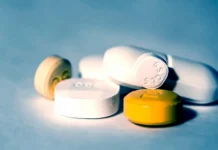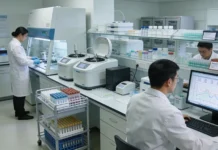Novartis says it plans to submit its microchip containing ŌĆśsmart-pillŌĆÖ technology to European regulators within 18 months. Novartis is currently using the technology on an already-approved drug used to prevent organ rejection in transplant patients , but is looking at incorporating the sensor-based technology into other medications for which compliance is critical, such as cardiovascular and oncology drugs.
The silicon and metal digestible sensor within the tablet, which is activated by stomach acid upon ingestion, is able to transmit data via wireless and Bluetooth connections to a patch worn by the patient, and from there, to a smartphone or a doctorŌĆÖs computer.
Anticipating that once the sensor-based technology is regulatory approved, the ŌĆśsmart-pillŌĆÖ platform will be transferrable to different drugs, Mundel said future ŌĆśsmart-pillŌĆÖ variants will be able to collect more advanced data, such as a patientŌĆÖs heart rate, temperature and body movement, to ensure a drug is working effectively.
Because the tiny chips are added to existing drugs, Novartis does not expect to have to conduct full-scale clinical trials to prove the new products work. Instead, it aims to do “bioequivalence tests” to show they are the same as the original. A bigger issue may be what checks should be put in place to protect patients’ personal medical data as they are transmitted from inside their bodies by wireless and Bluetooth.
┬Ā


















